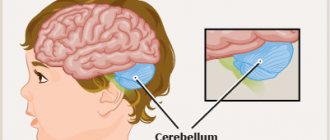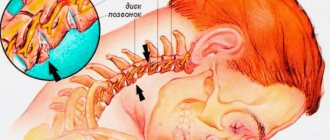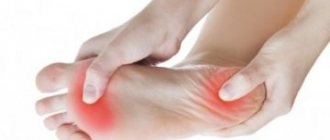Causes of overwork
The most common cause of overwork is the insufficient amount of time allocated for rest, in comparison with the duration of working hours.
At the same time, the necessary ratio of rest and work modes is individual for each human body. In addition, it depends on the intensity of the work performed and its nature. However, in some cases, even a seemingly sufficient amount of rest time allocated to an employee can lead to a situation of overwork. This may be caused by exposure to additional negative factors, such as increased noise levels in the workplace, unhealthy or insufficient nutrition, stressful situations, and others.
Everything is interconnected
Mental fatigue leads to exhaustion of the nervous system, which affects the physical condition of a person. The signs of physical fatigue and nervous fatigue are extremely close to each other. Overload of the nervous system causes muscle fatigue, and a prolonged tense state ends with the person feeling “broken.”
Nervous fatigue manifests itself as an overly excited state, a tendency to get irritated over small things, and a decrease in the level of sensitivity. The activity of deterioration of the condition depends on the personal characteristics of the person. Choleric people tend to get tired quickly, while phlegmatic people develop symptoms more slowly. The worse the emotional background, the more difficult it is to endure overstrain. The negative emotions of others regarding a person are strongly influenced.
Symptoms of overwork
The state of overwork, according to experts, has a number of characteristic symptoms that are signs of overwork in a significant part of situations.
Such symptoms can be divided into several main groups. The first of these is behavioral reactions that arise as a result of overwork. These include irritability and general nervousness, a decrease in reaction speed and the ability to concentrate on any subject, a deterioration in the ability to remember, and similar manifestations. In addition, being in a state of overwork, a person constantly experiences a feeling of fatigue, which is difficult for him to get rid of in the usual ways. For example, despite these sensations, he often cannot fall asleep for a long time, and sleep or rest does not bring the desired result, since after it the person still feels tired.
The second group of reactions are somatic signs, that is, certain bodily manifestations characteristic of a state of overwork. In this capacity, experts call constant aching headaches, redness of the eyeballs, swelling of the face and a change in its usual color and other similar signs. In some particularly severe cases, symptoms of fatigue may include nausea or even vomiting.
In addition, it is necessary to keep in mind that the listed symptoms are general, that is, the most common ways the body reacts to a state of overwork. At the same time, experts note that in some cases individual atypical reactions to such a condition are possible. So, for example, a variant of such a reaction could be a decrease or, on the contrary, a sharp increase in body temperature to a level of 38°C and even higher. In addition, it should be borne in mind that in this state the body is more susceptible to various infections, and therefore an increase in temperature may be a consequence of any disease.
Sources:
- Chronic fatigue syndrome
Unfortunately, people often do not notice the difference between short-term fatigue and constant overwork. There are symptoms that can help you identify accumulated fatigue. It is very important to understand this in time in order to avoid the most unpleasant consequences.
Recreation occupies an important place in a person's life. A lack of adequate rest in a constant routine of life, or prolonged exhausting work, can provoke unpleasant consequences. Both the quality of work performance and the degree of ability to work, as well as the state of health, can suffer from this. Such overloads for the body are very harmful and even fatal. More and more often you hear the question of whether fatigue can cause a fever, and what symptoms, in general, indicate overwork, and most importantly, how to protect yourself. This will be described in this article.
Why does body temperature rise due to nervousness?
Can the temperature rise due to nervousness? Yes, first of all, stressful situations lead to an increase in temperature. These include changes in climate, place of work, daily routine, and any exciting events. The body reacts to changes, and symptoms appear that are often mistaken for a cold or poisoning: increased headache, cardiac or hypertensive crisis, nausea, upset stomach. In fact, these are consequences of overexertion and a protective reaction of the body.
But not only stressful situations provoke an increase in temperature. Emotions have a negative impact on the body. The roots of illnesses lie in grievances, fears, feelings of excitement, self-doubt, overwork and aggression. Emotions must not be allowed to accumulate; they must find a way out, otherwise they will lead to self-destruction of the body. When negative emotions begin to disrupt the functioning of all systems, an elevated temperature (37.5) is the first signal that a malfunction has begun in the body.
Factors and structure of development
The main factor of fatigue is considered to be extremely long or difficult work, which is not covered even by high-quality rest. Our body has an energy potential that varies in quantitative terms. If complex, tiring work uses up all the resources, symptoms of severe fatigue become more active and a decrease in working capacity occurs. With this, the body gives a signal in order for the person to take a break, refresh himself, etc. If you don’t listen to this, then you provoke the waste of spare energy resources that fall into the “rainy day” category. During such a period of time, the dominant processes strive to obtain energy from everything that is possible. Energy depletion can be compensated for a certain amount of time, but then the moment comes when the reserves are completely used up. Thus, physiological exhaustion is formed.
At the emotional level, the body is not protected to such an extent from similar situations. The pace of emotional reactions depends on neural connections and the number of neurotransmitters in synapses. At a certain stage, the rate of impulse transmission will slow down due to a lack of neurotransmitters. Thus, absolute weakness, lack of composure, lethargy, and moral exhaustion are formed.
In addition, there is variation in the impact of stress on high levels of fatigue. Deep emotional overloads are not recommended for mature people and children; they lead to complete depletion of internal energy resources. It is difficult to deal with such stress and we are not always able to withstand psychological overload; a feeling of irritability appears. Such situations must be treated carefully and treated without delay, because this condition can serve as an impetus for unfavorable results.
Manifestations and their features
As a rule, overwork is accompanied by a number of symptoms that can be controlled, corrected, measured and confirmed with the help of tests and studies. In particular, often too much fatigue leads to disturbances in the frequency and speed of the heartbeat, a decrease or increase in blood pressure, and an increase in the content of hemoglobin and lactic acid in the circulatory system. With chronic fatigue, the concentration of sodium in the body increases, but the content of potassium and calcium salts decreases.
Overfatigue can be suspected if, during instrumental examination, the cardiogram shows non-standard areas, listening reveals heart murmurs, and when studying blood, a decrease in platelet concentration is detected. Leukocytosis and erythrocytosis are possible. Some people breathe significantly faster than normal, while others experience intellectual and physical stupor.
How is fatigue expressed?
This state of the body plays the role of a sequence of reactions, the purpose of which is to try to maintain performance at the final stages and vitality of the human body. The order of manifestations is combined with physiological changes and may vary, as it depends on the individual distinctive features of any organism. Signs and prerequisites for overwork can be recognized by the following indicators:
- Prolonged fatigue, not interrupted by subsequent rest, decreased ability to work;
- Decreased concentration, lack of composure, absent-mindedness, and later mild disorientation;
- Feeling dejected, depressed;
- Frequent mood swings, nervousness;
- Insomnia, disruption of routine;
- It is difficult and extremely lazy to get out of bed, even after rest;
- Low ability to work;
- Pain in the head area;
- Body temperature is higher than normal.
If such signs are observed for a long time, there is a threat of the development of chronic fatigue syndrome, which can cause unnecessary consequences for the ability to work and the existence of a person in general. Death from overwork is a very rare case, but a tragic result is likely if there is a sudden decompensation of the body's strength.
How to fight and treat overwork
Restoring good work capacity and combating fatigue is a very long and difficult task that will require especially scrupulous attention to your feelings. The most simple and effective methods in war and curing overwork:
- By slightly changing your lifestyle in general, you will achieve an excellent result in the form of complete restoration of your ability to work;
- The main thing to consider is that in case of physical exhaustion, the body needs rest directly from similar work;
- A productive method of getting rid of physical fatigue is to change the type of activity, for example, read a book or watch a movie. Mental fatigue, on the contrary, is overcome through physical exercise;
- The key law in organizing order is the consistency of intellectual and physical activity, and rest time;
- Fatigue can be eliminated through relaxation. Warm salt baths can combat fatigue. Absolute peace contributes to complete unloading, both at the level of mental activity and physical activity.
From today you know whether fatigue can cause your temperature to rise. Take care of your health, do not overwork yourself and get complete rest.
Video about symptoms of chronic fatigue
In this video you will learn what body temperature can be when you are overtired:
If an active, cheerful child suddenly becomes drowsy, capricious, indifferent to everything or lethargic, the parents get scared and suspect that the baby is sick. When a child stops enjoying games with friends, other entertainment, and studying at school, but no symptoms of illness appear, most likely the child is simply tired. But can a child develop a fever from overwork?
Diagnostics
Can a healthy person have a fever from fatigue? This phenomenon is possible. Fatigue can also occur due to temperature. In this situation, the illness has a completely different character, since high temperature for a long time is considered a sign of the development of some illness, usually serious.
Diagnosis of ailments that are not associated with overwork is performed in the following cases:
- Weakness appears, which does not go away for a long time or occurs suddenly, and performance decreases several times.
- The causes of fatigue are not psychological or emotional in nature.
- The temperature increases gradually.
- Slight enlargement of lymph nodes with pain.
- There are muscle pains.
- Acute headaches.
- Decreased performance during physical activity.
- Acute joint pain.
- Insomnia.
During the examination, the presence of chronic diseases is taken into account. Biological material is examined for infection, and sometimes an analysis is prescribed to determine HIV infection. Diagnostics of internal organs is also required.
Chronic fatigue is likely to be detected. Could the temperature rise due to fatigue in this case? This symptom can be long-lasting, and other symptoms may also appear. The chronic form appears after injuries, accidents, or bruises. In the future, the patient can lead a normal life, but signs of fatigue may take a long time to appear.
Can a baby's temperature rise due to fatigue? This phenomenon is allowed, as in children of other ages. It is necessary to provide the baby with rest, proper nutrition and appropriate care.
How to recognize overwork
It is not surprising if the day turns out to be unusually long and busy, after which the child gets tired, may refuse dinner, have difficulty doing homework, or fall asleep right at his desk. Sleeping at night solves this problem. However, if such overwork occurs repeatedly, it can cause exhaustion and harm the body.
Important! Overfatigue increases if the body's forces (this includes not only physical, but also mental and emotional) are so great that the body does not have time to restore them along with how much it spends.
What may be the symptoms of overwork:
- Fatigue recurs more than one day;
- There is a disturbance in night sleep: children cannot fall asleep in the evening, after which, naturally, getting up in the morning turns into a disaster, and during the day they want to sleep;
- The baby’s mood turns into a galloping curve - then apathy, then tears, suddenly detachment, whims again, and so on;
- Unreasonable rise in temperature;
- A child's speech is similar to the speech of a sleepy person;
- Headache often accompanies fatigue;
- Pale skin along with darkening of the skin around the eyes;
- The heart beats quickly, the pulse accelerates, perhaps even breathing becomes more shallow;
- Decreased or absent appetite;
- Muscle pain or hypertonicity.
If mom or dad notices such symptoms, they should immediately seek medical advice. The fact is that, along with relatively harmless fatigue, such signs can be dangerous diseases.
Note to parents! Stress affects a child's fatigue level. The deep emotional experiences that a child can receive from a seemingly harmless situation (a quarrel between parents, a reproach from a teacher, not to mention divorce, the death of relatives, quarrels with peers, and so on) lead to the depletion of the body’s energy resources.
Low-grade fever is one that does not exceed 38 degrees. Along with symptoms of fatigue, the temperature may rise. It is never high, it arises and falls suddenly, or it lasts for a certain time. No foci of inflammation are detected, even hidden ones, which is confirmed by tests.
So, can a small or adult child develop a fever from overwork? Normally, a child should not have a low-grade fever. If it is there, then the body is working under load.
Who should I contact?
Since there are many symptoms, you need to choose a doctor carefully. Each specialist is responsible for specific problems:
- if you have insomnia, you need to go to a neurologist;
- for eczema - see a dermatologist;
- and in case of gastrointestinal disorders - to a gastroenterologist.
Treatment does not always lead to the desired result. Often, eliminating the symptoms of an identified illness does not relieve fatigue and high fever. Then you need an examination and consultation with a therapist who will determine a number of probable causes of fatigue.
Can the temperature rise due to fatigue in adults and children? This symptom is common. For a long time it remains at the level of 37-37.5 degrees. This confirms the weakening of the immune system, which leads to many unpleasant symptoms.
Many people experience drowsiness, which can progress to insomnia. The reasons for the appearance include a change in working hours, including time differences when changing place of residence and changing work schedules. Common symptoms include inattention and decreased performance. Changes in emotional state are likely - the appearance of depression, apathy, phobia.
In addition to fever and other symptoms, there may be a sudden weight loss, which amounts to 7-10 kg per month. Possible fear of light, dizziness, dry eye mucosa, enlarged lymph nodes. A symptom in women is considered to be severe PMS.
Causes of hyperfatigue in a child
As stated, the causes of overwork can be stress, physical overload, and lack of sleep. But not only that: the level of energy reserves is affected by:
- Diseases that exist in open or latent form: anemia caused by a lack of iron or folic acid, insufficient function of the thyroid gland, inflammation, starting from dental, ending with internal sources of infection, allergies, respiratory diseases, hormonal and autoimmune problems, tumor formations.
- Poor nutrition, or unbalanced food, as well as eating out of order.
- Seasonal or other vitamin deficiency.
- Change of usual way of life. Often such reasons can be moving or changing schools.
- Excessive sports activities, if the child has just started playing sports, gets too tired.
- Preparation for exams, admission, Olympiads, certifications and more.
What to do if you feel overworked
At the first suspicion of excessive fatigue and fever from fatigue, parents should understand and weed out the reasons why this is happening. It is necessary to work on restoring the physical and emotional background of your child, giving great importance to restful sleep without awakenings and irritants, in the form of light, music, and other noise.
Consultation with doctors: psychologist, cardiologist, other specialists is very important. Since if, as a result of excessive overwork, the function of some organ was impaired, it should be restored. The necessary treatment will be selected.
In addition, prevention necessarily includes:
- Complete food that a baby or teenager takes according to the regimen;
- Auxiliary vitamin complexes;
- Mandatory walks in the fresh air;
- Reducing stress on the child;
- Variety of activities, change of scenery;
- Restorative relaxation activities such as massage.
Should the temperature caused by fatigue be reduced? It is necessary to look at the child’s condition. If the temperature is not higher than 38 degrees, then it should not be reduced even in very young children. If the child is older, for example, a schoolboy, then even a temperature of up to 39 degrees can be useful. If the thermometer readings are higher, you should take antipyretics to relieve the fever.
An important part of a person's life is rest. Lack of quality rest in human mode or exhausting long hours of work can cause negative consequences. Not only the quality of work and level of performance may suffer, but also human health. Such stress on the body can be very harmful and sometimes fatal.
Other reasons
The exact factors leading to fatigue are not fully identified. Infectious or bacterial diseases are important. This is due to the stimulation of the immune system by infectious cells, which quickly wastes the body’s strength. Can your temperature rise due to fatigue? During this period, the production of cytosines is observed, which causes the temperature to rise. Signs of an increase in temperature include:
- lethargy;
- muscle pain;
- malaise.
Other causes of rapid fatigue include inappropriate functioning of the endocrine system, which causes insomnia. The person will not be able to assimilate information well. It is with these signs that patients turn to doctors.
Can fatigue cause fever along with other symptoms? This symptom is more pronounced in women than in children and men. Another increase occurs among those who work a lot and have little time to rest. If they want to get good results at work, a high salary or recognition from their superiors, many bring themselves to a nervous breakdown, which occurs when they are overworked.
Fatigue and overwork
For a workaholic or a person who is forced to engage in long-term mental or physical labor, it is important to know how to avoid overwork.
To understand the meaning of those sensations that arise after prolonged exercise, it is necessary to separate two similar terms. Fatigue and overwork are concepts that combine causes and manifestations, but also have a number of absolute differences.
Fatigue is a common manifestation of fatigue that develops as a result of the use of the body's mobile resources. This phenomenon is observed quite often and tends to quickly regress provided that it receives quality rest. Overfatigue is a deeper process, which is essentially pathological fatigue and can last for a long time. This phenomenon is especially dangerous for children and adults with chronic diseases. It can have fatal consequences on the course of pregnancy and the health of the unborn child.
Experienced stress causes an increase in body temperature
An increase in temperature from a stressful situation is a physical reaction, and it is not accompanied by any inflammatory processes in the body. This phenomenon occurs quite often, it even has a special name - psychogenic temperature. In addition, high fever from stress is often accompanied by other side symptoms, such as loss of strength, dizziness, shortness of breath, and poor health. Emotional or psychological stress, according to experts, in most cases over time becomes the cause of the so-called “chronic fatigue syndrome.”
Causes and mechanism of development
The main cause of fatigue is excessively long or heavy workload, which is not compensated for by quality rest.
The human body has a certain energy potential, the ability to perform work, which varies in quantitative terms. If hard, exhausting work consumes all resources, signs of severe fatigue and decreased performance begin to appear. The body gives this call so that a person can rest, refresh himself and gain strength.
If this is not done, a person’s reserve energy reserves begin to be used up. Fat reserves of ATP in complex compounds are mobilized, which are stored “for a rainy day.” During such a period, the prevailing catabolic processes try to squeeze energy out of everything they can. Energy depletion can be compensated for some time, but then a moment comes when the reserves are consumed. This is how physical fatigue develops.
On an emotional level, a person is not so protected from such situations. The speed of mental reactions, including emotional ones, depends on the quality of neural connections and the amount of neurotransmitter in the synapses. This substance promotes the transmission of nerve impulses between neighboring neurons. At some stage, the speed of impulse transmission will slow down due to a lack of neurotransmitter in the synapses. This is how general weakness, absent-mindedness, drowsiness, and mental fatigue develop.
After energy resources are used up and mental processes slow down, a special reaction of the brain occurs at the neural level. To protect cells from damage due to hypoxia and other metabolic disorders, the human brain responds with a reaction of extreme inhibition. As a result, a person’s ability to work is suppressed at a subconscious physiological level in order to preserve the vitality of the body.
There is also a version of the effect of severe stress on increased fatigue. Serious emotional stress, both for an adult and a child, is extremely undesirable, as it leads to the depletion of internal resources. Dealing with such stress is difficult and a person mentally cannot withstand the emotional stress, insomnia, feelings of irritability and anxiety occur. This condition should definitely be paid attention to and treated immediately, as it can lead to negative consequences.
This condition is a sequence of reactions of the body that try to maintain the ability to work, and in the final stages, the vitality of a person. The sequence of manifestations is associated with physiological and metabolic changes and may differ depending on the individual characteristics of each organism.
Common symptoms of fatigue can be diagnosed by the following:
- severe long-term fatigue that does not stop after rest, decreased performance;
- decreased concentration, absent-mindedness, forgetfulness, and later mild disorientation;
- feeling of depression, depression, lack of self-confidence;
- frequent mood swings, irritability;
- insomnia, disturbances in sleep patterns and quality;
- it’s hard to get out of bed even after rest;
- low performance;
- headache;
- increase in body temperature.
If such signs are observed for quite a long time, there is a risk of development, which can cause extremely undesirable negative consequences for a person’s performance and life as a whole. Death from overwork is a fairly rare occurrence, however, a fatal outcome is possible in the event of a sharp decompensation of the body's capabilities.
Dream
A person needs full and healthy sleep so that the brain has the opportunity to process the information accumulated during the day and “sort it out” in order to begin new tasks in the morning with a fresh head. Often mental fatigue provokes insomnia. Thus, the brain, which has not rested during the night, is not able to cope with a large number of impulses and information processing during the day, which leads to drowsiness during the daytime.
Medication solution
Can the temperature rise due to nervousness? You already know the answer to this question. Any ailment in the body must be fought; everything cannot be left to chance. To combat stressful situations, many medications are used for depression and stress. You can calm your nerves and improve your nervous system by using medicinal plants that have a calming effect. These are chamomile flowers, mint, fireweed, peony, borage, motherwort.
Take responsibility for your health. Be healthy!
The life of a modern person is a continuous chain of rather complex, sometimes even stressful situations. Stress is a mental, emotional, physical and chemical reaction of the body to some frightening factors or external stimuli. A person becomes nervous, his pulse quickens, his blood pressure rises, and adrenaline is released into the blood. Thus, all systems switch to a forced operating mode, and the temperature rises accordingly.
Features of overwork during pregnancy
During this period, a woman needs to take care of herself so that her body can provide vital functions for both mother and child. During pregnancy, the consumption of energy resources is increased, the emotional state is extremely unstable due to the peculiarities of the hormonal background, which is created during pregnancy for the normal development of the child. Therefore, any stress that causes fatigue can significantly undermine the adjusted metabolic mechanism of a pregnant woman. It is important for her to know how to avoid overwork, because prevention for a pregnant woman is the best treatment.
Overwork can occur even with minor exertion, so it is necessary to avoid heavy physical labor during pregnancy. Naturally, there are restrictions on mental stress during pregnancy. Stress, emotional shock or prolonged stress on the brain can easily trigger nervous fatigue. A precarious metabolic balance can easily be disrupted by a powerful stress factor, which can even lead to termination of pregnancy.
It is known that due to hormonal levels during pregnancy, a woman’s emotional sensitivity changes. That is, those experiences, emotions and stress that she could easily endure if she were not pregnant, in this state can cause significant disturbances in the health and psyche of both the woman and the unborn child. If during pregnancy there is constant fatigue and excessive stress, one should expect consequences that may affect the child. At the stage of formation of fetal organ systems, stem cells are very sensitive to any fluctuations in the homeostasis of the mother’s body. The child may experience congenital defects, developmental delays, and other equally serious manifestations.
Overwork in children
This dangerous condition leads to health problems. Overwork is most often preceded by severe fatigue. Causes:
- Infants: violation of the daily routine, problems with breastfeeding;
- preschoolers: stressful situations, dysfunctional family environment, excessive attempts by parents to develop their children in every possible way, to raise geniuses;
- younger schoolchildren: physical and mental stress, overload with lessons, short sleep at night;
- older schoolchildren: hormonal changes, high intellectual load, conflicts with peers.
Methods of treating and combating fatigue
Restoring normal performance and combating fatigue is a rather long and complex process that requires especially careful attention to your own feelings.
The simplest and most effective ways to combat and treat fatigue:
- By slightly changing your lifestyle, you can achieve good results and restore your performance.
- The easiest way to relieve symptoms of fatigue is to rest. It is important to consider that physical fatigue requires rest from physical labor. The most effective way to get rid of physical fatigue is to change your activity, for example, you can read a book or watch a movie. Mental fatigue, on the contrary, can be dealt with through physical exercises. The main rule in organizing the regime is the harmony and balance of mental and physical stress, and the rest period.
- Fatigue can also be eliminated through relaxation. Hot baths with sea salt can fight fatigue. Complete relaxation promotes unloading, both at the level of brain activity and physical activity, restores performance, and restores strength.
- Correcting insomnia plays an important role in restoring performance, because sleep is a very important period for the brain. Natural herbal teas with lemon balm, mint or chamomile will help you quickly get rid of insomnia and the effects of stress. An effective folk remedy - warm milk with honey is considered one of the most famous natural sleeping pills. Tablets should be taken only on the recommendation and prescription of a doctor in cases where other methods do not help get rid of insomnia.
- You can get rid of energy deficiency with proper nutrition and supporting the body with vitamins. The importance of vitamins in the treatment of fatigue is difficult to overestimate. They help fight symptoms by restoring the functioning of all body systems. At the moment, vitamins are exactly the remedy that can most often be recommended to both adults and children, because they do not cause side effects if taken correctly. Moreover, vitamins can improve cognitive functions of the brain and increase mental performance.
Drug treatment for fatigue
The goal of pharmacological treatment of this disorder is to help the organs and systems of the body cope with the tasks and load. Such therapy can be corrective and temporarily remove some symptoms, improve performance, and do it easily and quickly.
The most effective pharmacological agent is vitamins in tablet form. This form of release includes practicality, accessibility and ease of reception. At the treatment stage, preference should be given not to vitamin complexes, but to individual representatives.
For example, vitamin A is a natural immunostimulant that protects the body's systems from the influence of foreign agents, eliminates temperature reactions, and loss of strength. Vitamin A is found in cottage cheese, eggs, milk, fish, and carrots. It should be taken every day after a heavy meal. B vitamins are able to balance any pathological changes in the nervous system, strengthen the immune system, and increase resistance to a variety of viruses and bacteria. In particular, Vitamin B9, known as folic acid, improves mood, prevents the development of depressive symptoms, normalizes emotional fluctuations, and is one of the body’s most important means of combating stress. Food sources of folic acid are beef liver, cod liver, spinach, walnuts, rye flour, cheese.
If traditional methods are not effective in eliminating insomnia, you should turn to pharmacological agents. Tablets can only be useful when there is a real problem with sleep that cannot be eliminated by other methods and they can only be used as a last resort. Herbal preparations can be effective. Potent medications should only be taken with a prescription. It should be understood that such drugs affect all organ systems and can cause a number of side effects, and sometimes even reduce performance.
Since pathological fatigue is a serious condition that can cause complications from the physical state and the brain, treatment must be approached thoroughly and seriously. If the body is depleted to the point of decompensation, the person may even die. Ideally, treatment should be carried out by a specialist - a psychologist or psychotherapist. Taking pills or other medications is not enough to combat fatigue. Only by changing your lifestyle can you get rid of unpleasant symptoms forever.
Can your temperature rise due to overwork?
High temperature is often a sign of acute inflammatory disease. Sometimes, only by hyperthermia can one determine that viruses or bacteria have entered the body and are actively carrying out their activities, provoking the development of a variety of ailments. But it happens differently: body temperature rises in response to severe overwork, stress and fatigue.
This is not a very dangerous phenomenon, because for now a person only receives a signal that it is time to stop, rest and replenish his strength. If timely measures are not taken, the process can be transferred to a chronic stage, which is not only difficult to treat, but long, expensive and not everyone can afford.
A high temperature is not only a sign of fatigue. This is the result of a decrease in immunity, the entry of viruses into the body, which in the normal state the organs and systems can easily cope with. As a result, atypical allergic reactions develop, severe skin diseases occur (eczema, vitiligo are considered a manifestation of chronic fatigue and overexertion syndrome), nervous breakdowns, and reactions from the cardiovascular system.
Some experts consider an increase in temperature for no apparent reason to be a manifestation of an acute depressive state. This process also requires the immediate intervention of doctors and the prescription of effective treatment.
There is nothing better than good rest, night sleep (at least 7-8 hours), vacation at least once a year (or better twice for at least 2 weeks). Exercising instead of sitting at the computer, healthy food instead of fast food, chatting with friends on a walk or at home instead of online correspondence - all this will help maintain health and relieve the body of the fatigue accumulated during the day. A weekend in nature is the best thing a person who works indoors for 10-15 hours a day can come up with.
Prevention
Prevention of overwork is the best medicine. Adhering to certain rules of prevention contributes to high-quality performance and good health.
Important components that can prevent and combat the symptoms of fatigue are:
- strong healthy full sleep;
- comprehensive balanced nutrition and taking a complex of vitamins;
- avoiding the monotony of the work process, changing working conditions;
- compliance with the work and rest regime;
- the ability to relax and give yourself the opportunity to take a break from the hustle and bustle.
Overwork is a condition that every modern person can face. Many people treat this disease with irony, and, when faced with it, very often do not pay attention to it. Although doctors have long included it in the classification of diseases. And it is worth replacing, like other diseases, mental fatigue has its own causes, symptoms and possible consequences. The most obvious causes of this disease are: hard work, lack of rest, unfavorable working conditions, poor lifestyle and nutrition.
Prevention of overwork
Overwork is not a disease, but the approach is the same: it is easier to prevent it than to correct it later. By following simple recommendations, you can remain active throughout the year, and a vacation will be enough to recuperate.
- Get plenty of rest on your weekends.
- Don’t overload your brain with TV, heavy music, or other people’s problems.
- Change your activities: if your main work is physical, don’t neglect books at home, and vice versa.
- Do feasible sports: walking, jogging, morning exercises, swimming pool, cycling.
- Visit relaxing treatments: bathhouse, sauna, swimming pool, massage.
- Avoid drinking alcohol at the first sign of fatigue. Instead of relaxing, you yourself will introduce toxic substances into the body and aggravate the situation.
Think carefully about your vacation. I want to do everything at once. But if you have 3-4 days off, it’s better to go out of town with your family, relax in nature, rather than go abroad for new experiences.
Parents must provide:
- supply of fresh air to housing : regular ventilation of premises;
- daily walks : regardless of the weather, even if it’s raining outside, you can breathe fresh air under a canopy;
- good nutrition : more vegetables, fruits, herbs, natural meat and dairy products;
- quiet time before bed : reading a book, putting together a puzzle, coloring;
- compliance with the daily routine : the child’s night sleep should be at least 9-10 hours.
Knowing the symptoms of overwork, modern approaches to treatment and prevention, it is easy to prevent the transition of a borderline state into a disease. If left untreated, the acute condition will develop into chronic fatigue - nervous or physical exhaustion, the symptoms of which are more serious. Social complications, health problems, and communication problems arise. The quality of life suffers greatly, and long-term serious illnesses are possible.
Take overwork seriously - it is not just fatigue, but a protracted pathological condition that can lead to illness. Follow a daily routine, alternate periods of activity and rest, avoid overwork and overload.
What are the symptoms of this disease?
As you know, mental fatigue can be of three stages, and symptoms appear depending on the stage of this condition. But there are still general objective signs that can be used to determine the degree of the disease.
- constant, which does not go away after a night's rest;
- headaches for no apparent reason;
- redness of the eyes;
- change in complexion, bruises under the eyes, swelling;
- inability to fall asleep when tired, especially in the morning;
- increase and decrease in blood pressure;
- increased irritability and nervousness;
- loss of concentration, memory impairment, distracted attention;
- nausea, vomiting.
But it is worth remembering that you cannot completely rely on these signs to determine an accurate diagnosis, as this may indicate other diseases. For example, severe nausea, headaches, and red eyes may hide hypertension or other diseases of the cardiovascular system.
Symptoms
Fatigue manifests itself in the form of ARVI and other colds. When the disease enters the acute stage, the following is likely to occur:
- lethargy, constant headaches;
- depression, aggressiveness.
If such symptoms appear repeatedly, you should consult a doctor. If there is no treatment, the symptoms can become chronic, which is characterized by the persistence of manifestations of the disease, which appear daily for 6-12 months.
Treating mental fatigue with aromatherapy
Essential oils are often used in the treatment of this disease, as they help increase brain activity and help prevent the effects of mental fatigue. But under no circumstances should you overuse essential oils. It helps a lot of people in a critical situation when a person needs a clear head. They can be used from time to time when quick help is really needed. But it’s best to take breaks from work and find a couple of minutes to relax.
Basil, mint, rosemary
– these three oils are most often used for these purposes. If you wake up tired and sleep deprived, take a bath and add 6 drops of rosemary to the water - this will help you before a hard day at work. It is best to drink chamomile in the form of tea, and try to drink less coffee and strong tea.
What is mental fatigue and its stages?
This state of the body has 3 stages, so by carefully analyzing each one, you can find out how mental fatigue manifests itself. Starting from the easiest - the first stage and ending with the heaviest - the third.
Stage I
characterized by subjective symptoms such as sleep disturbance (difficulty falling asleep, frequent awakenings and severe fatigue after a night's rest), lack of appetite. At this stage, fatigue may also manifest as an inability to cope with mental or physical stress.
In stage II
objective symptoms are very pronounced, which brings discomfort and reduces the quality of life. The previous symptoms at the first stage include: fatigue, painful sensations in the heart, after physical activity spasms or trembling of the limbs may appear. The fact is that it is at this stage that changes in almost all organs of the body begin to occur. Sleep begins to deteriorate and does not bring relief, which is associated with nightmares, awakenings, etc. And if you add it to everything else, you definitely won’t be able to fall asleep.
But it is worth remembering that bursts of performance may occur, for example, in the early morning or during the evening rest period.
This stage is also characterized by metabolic disorders, resulting in weight loss. A person may have both a decrease and a decrease for no reason. There is an unhealthy appearance, paleness of the face, bruises under the eyes, blue lips and marbled skin. It is worth mentioning that in intimate terms, men’s sexual function suffers, and women are characterized by a delay in menstruation and its cessation.
Stage III
– the most severe and manifests itself as neurasthenia. A person at this stage suffers from increased excitability, constant fatigue, severe insomnia, which causes drowsiness during the daytime. The functioning of the organs is significantly impaired, so stage II and III fatigue must be treated, since a person is knocked out of normal life for a long time.
Characteristic manifestations
Common signs of any overwork include:
- frequent colds;
- memory impairment;
- change in body temperature;
- blood pressure problems;
- the appearance of apathy;
- constant feeling of fatigue;
- insomnia;
- decreased capacity;
- changes in emotional terms, in particular the appearance of irritability.
Signs of overfatigue in children include:
- irritability;
- tearfulness;
- excessively long daytime sleep;
- deterioration of appetite or its complete absence;
- increase or decrease in temperature;
- sleep problems;
- appearance of hysterics.
Manifestations of physical type
The physical type is characterized by gradual development. Initially, the person experiences slight fatigue and minimal soreness in the muscle area. Often these signs remain without due attention. The individual continues to lead an active lifestyle and goes in for sports. In the absence of timely recovery, the situation begins to worsen, marked by the following signs:
- body temperature rises up to 39 degrees;
- problems with sleep appear;
- there is pain in the chest;
- muscle pain becomes more intense;
- apathy appears;
- Appetite decreases, followed by body weight;
- characterized by the presence of tachycardia;
- blood pressure may increase.
Signs of mental fatigue
This type is often perceived by people as ordinary fatigue. At the same time, the person is convinced that he will be able to recover after rest. But in particularly advanced cases, special therapy cannot be avoided.
Among the early symptoms of mental fatigue are:
- pain in the head that occurs from time to time, for no apparent reason;
- overwhelming fatigue;
- pale complexion;
- persistent bruises appear under the eyes;
- changes in blood pressure;
- insomnia;
- redness of the sclera of the eyes.
When running, the following are attached:
- memory problems;
- nausea and even vomiting;
- nervousness;
- problems with concentration;
- severe irritability.
You should know that this type has three stages of development.
- Easy stage. There are signs of overwork such as problems falling asleep and inability to recover after a night's sleep.
- Second: problems arise with the digestive organs, appetite worsens, the color of the skin and eyes changes, men may experience a decrease in potency, and women may experience menstrual irregularities.
- The third is manifested by neurasthenia, excessive excitability and irritability, and an almost complete lack of night sleep.
Emotional type
Emotional is also destructive. It is provoked by excessive stress, leading to severe emotional burnout, which in this case is considered as a defense mechanism.
It appears as follows:
- the presence of an inhibited reaction;
- apathy, lethargy;
- decreased tactile sensitivity;
- possible weakening of taste buds;
- decreased emotionality;
- mood swings;
- irritability;
- desire to be alone with oneself;
- presence of restless sleep, possible nightmares and insomnia.
This type can be caused by a difficult situation in the family, the presence of intense nervous work, serious shocks, and an excess of both negative and positive emotions.
Manifestations of nervous fatigue
Nervous fatigue is manifested by a violation of the transmission of impulses in nerve cells. The following manifestations are noted:
- headache;
- general weakness;
- constant drowsiness;
- deterioration of tactile sensitivity;
- muscle fatigue.
Such overstrain can be provoked by: nervous work, stress, negative effects on sensory organs, in particular constant noise, unpleasant odors. Contributing factors may include increased anxiety and the presence of phobias.
Methods of treatment of various stages
The most important rule in the treatment of mental fatigue is to reduce all types of stress that have been affecting the sick person’s body all this time. At stage I
treatment occurs by reducing the psycho-emotional impact. A person must follow a daily routine, eliminate intellectual stress and significantly reduce physical activity. Such treatment will take 2-4 weeks, then intellectual stress should be gradually introduced; a person will need about the same amount of time, 2-4 weeks, to recover.
As for stage II
, then a person needs a break from everyday activities, which should last 1-2 weeks. It should include active recreation, such as walks in the fresh air, autogenic training and massage. Then, within 1-2 months, you need to introduce a normal work schedule, just remember that throughout the entire time the patient must adhere to the correct daily routine.
Stage III treatment
overwork should occur in a special clinic for 2 weeks, where the person can completely relax, after which the same period of time should be allocated for active rest. After these two stages of treatment, a gradual stage of return to normal life should occur over a period of 2-3 months.
Physical fatigue
Develops gradually. At first, mild fatigue and mild pain in the muscles occur. The symptoms go unnoticed, the person continues physical labor or sports, does not reduce the load, which leads to the height of physical fatigue.
Symptoms of physical fatigue:
- constant feeling of fatigue, after sleep, rest, massage;
- increasing muscle pain: at rest, with tension;
- restless sleep: waking up for no reason, difficulty falling asleep;
- disturbance of the emotional background: apathy, lethargy or irritability;
- discomfort, pain in the area of the heart;
- tachycardia;
- decreased appetite;
- white coating on the tongue;
- trembling of protruding tongue;
- weight loss;
- in women - menstrual irregularities.
Symptoms of overwork appear at work. It is impossible to fulfill one’s professional duties fully and efficiently.
Available means and methods that speed up recovery from fatigue.
An ancient Russian way to eliminate fatigue, recover from hard physical labor, increase performance, and strengthen the immune system. Frequency – 1-2 times a week, after the session – massage. You should not visit the bathhouse immediately after exercise, if you are feeling unwell, have acute illnesses, or have a number of other contraindications.
Water helps to “wash away” fatigue and the heavy burden of the day.
- oxygen bath . Indicated for physical fatigue, after injuries, and for diseases of the musculoskeletal system. Procedure time - 7 minutes, per course - 15 procedures, daily;
- vibrating bath . Activates protective and restorative mechanisms, blood circulation, stabilizes metabolism, eliminates muscle fatigue. Procedure time – 3-5 minutes, per course – 15 procedures, daily;
- pearl bath (with air bubbles passing under high pressure, water temperature 37 C). Promotes relaxation and eliminates nervous tension. Procedure time – 10 minutes, per course – 10-15 procedures;
- pine bath . Has a calming effect and eliminates physical fatigue. Procedure time – 10 minutes, 2 times a week, can be done regularly;
If you don’t have time to take medicinal baths, a regular shower will help:
- a hot shower with water temperature + 45 C has a tonic effect;
- a warm rain shower soothes, refreshes, and eliminates muscle pain;
- cascade shower increases muscle tone;
- A contrast shower supports the body's performance and speeds up recovery.
A universal procedure that has a positive effect on the central and peripheral nervous system, heart, blood vessels, digestion, and metabolism. Duration of massage: 10 minutes for each leg, 10 minutes for the back and neck, 10 minutes for the upper limbs, 10 minutes for the abdominal area and chest.
What to do if there is no time for all these procedures?
- Eliminate excessive stress, do not give up your usual physical activities completely. Change activities, take a short vacation.
- Walk outdoors every day.
- Eliminate nervous tension as much as possible (don’t live with other people’s problems, don’t get nervous over trifles, etc.) see how to stop getting nervous over trifles and strengthen the nervous system;
- Review your diet: saturate your menu with fruits, vegetables, herbs, and lean meats.











